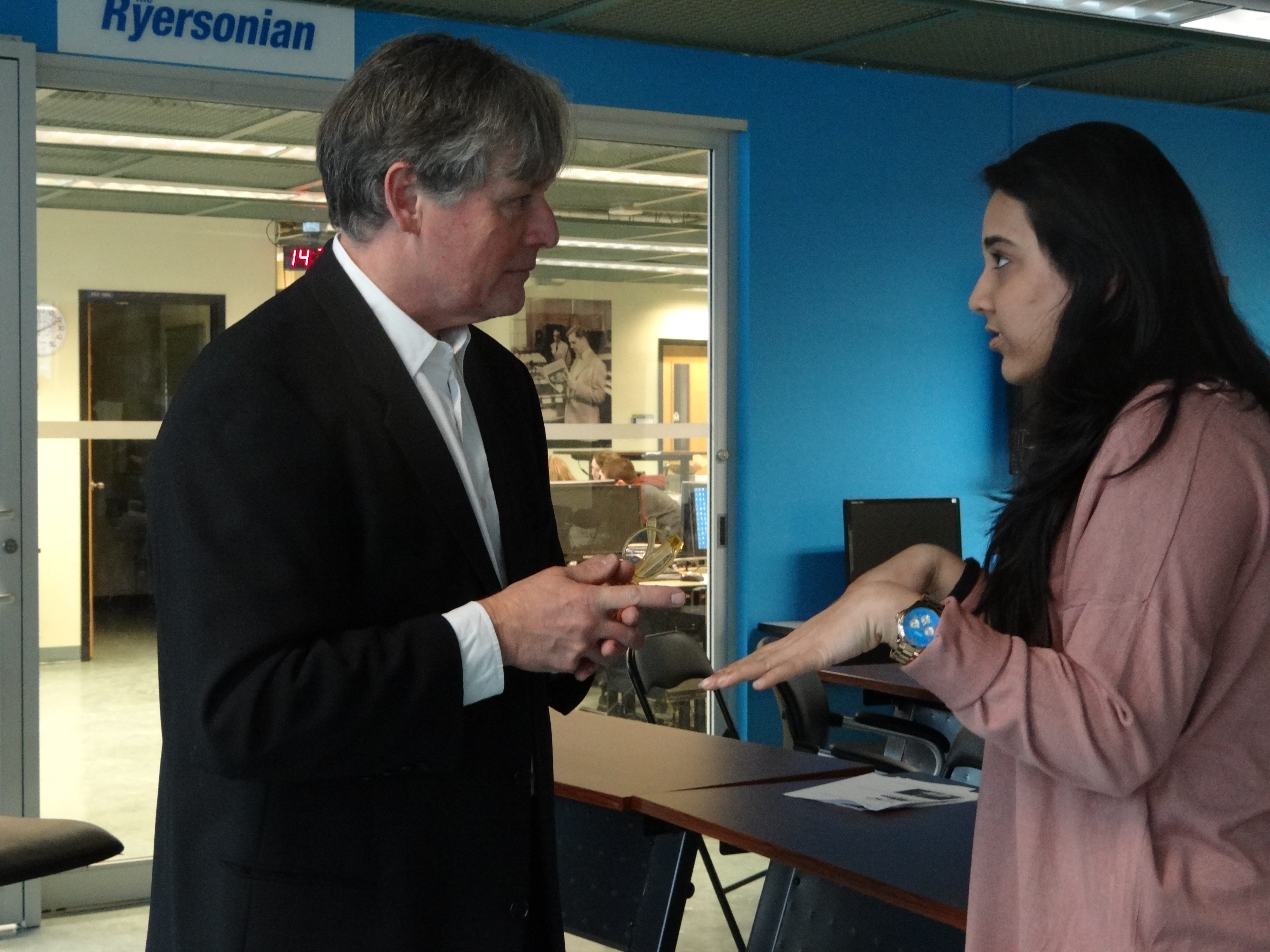By ILINA GHOSH
Staff Reporter
March 8, 2016

Freelance journalists must pitch strategically and confidently and be “the raccoon[s] of the journalism world,” veteran freelancer Robert Osborne told students at a recent workshop organized by the Ryerson Journalism Research Centre.
Osborne’s workshop, which focused on selling stories and maximizing the return on work, took students through the freelance process, drawing on lessons he learned over his 14 years as a freelance journalist and producer. Building a diverse set of skills and performing under a diverse set of conditions is critical to freelance success, he said.
“You’ve got to be the raccoon of the journalism world, where you can eat anything, go anywhere, do anything…to thrive.”
Osborne, who is also an instructor at Ryerson’s School of Journalism, emphasized the need to find a fitting client for a pitch. Be a “heat-seeking missile” when targeting news outlets, he said.
“You can have the best story idea in the world but if you take it to the wrong place, you are going to get a lot of no’s.”
Pitching to the correct outlet is all about research, Osborne said.
“You’d be surprised at how many people will pitch perfectly good ideas to the wrong venue…So the first thing you have to do is read the magazine, watch the darn show, research their webpage, really take some time to think what kind of product are they looking for.”
A good pitch also involves a story with a clear focus, Osborne told students: “If you can’t explain the story in one line, you may not know what the hell your story is about.”
The next step is to expand the one line into what Osborne calls a “one page.”
“[A one page] is going to hit all the major bullet points [without being] a mini version of the story. It’s taking all of the salient issues and facts that are going to be involved in your story and putting them together as a sales pitch.”
When pitching to a broadcaster, a “sizzle reel” or pitch video is also necessary, Osborne said, and means freelance journalists must develop rudimentary shooting and editing skills.
“You may be never be a gifted cinematographer, you may never be a gifted editor, but you have to got to know how to string together something for a minute and 30. As well as a one page, every broadcaster from VICE to CBC to Green Ant Productions is going to be looking for a sizzle reel.”
While freelancing does involve a certain amount of working for free, Osborne also focused on how to “maximize your sweat equity.” Freelancers need to pitch the same idea in a variety of mediums and to a variety of outlets, Osborne said. Once an idea is picked up by a news organization, however, he advised against selling the same piece to a direct competitor.
Nick Dunne, a second-year journalism student, said the advice on pitching to multiple organizations and different mediums was especially interesting.
“[At this stage in school,] we’ve done a lot of focus on print and writing, so it was really interesting to see where you can go with [your work,] the different mediums you can bring it to, the opportunities that lie beyond print and more conventional means.”
Osborne said persistence is also an important part of life as a freelancer because unreturned phone calls and unanswered emails are to be expected.
“You have to have a thick skin. You have to keep going at it… in a persistent and polite way. You have to keep reminding them you’re still out there, find out if there’s an update in a story, that’s a reason to send them [another email.]”
While freelancing involves a lot of rejection, Osborne urged students to “have confidence in your good idea.”
“If you have an idea that you really feel strongly about, don’t let it collapse because the first place you took it says ‘We’re not interested.’ If that’s going to shatter you… then you’re in the wrong business. You’ve got to keep pushing that idea; if one person doesn’t like it, push it to another… until you get a hit,” he said.
Osborne ended the presentation with what to do “when you do get a nibble.” Be professional and willing to word hard, he said.
“If you’re obnoxious, if you’re difficult to work with, you will not get a second chance at any of these places. It is critical that when you do get a hook in, even the smallest of jobs with somebody, that you really act like a professional. Whatever they need done, you get it done.”
